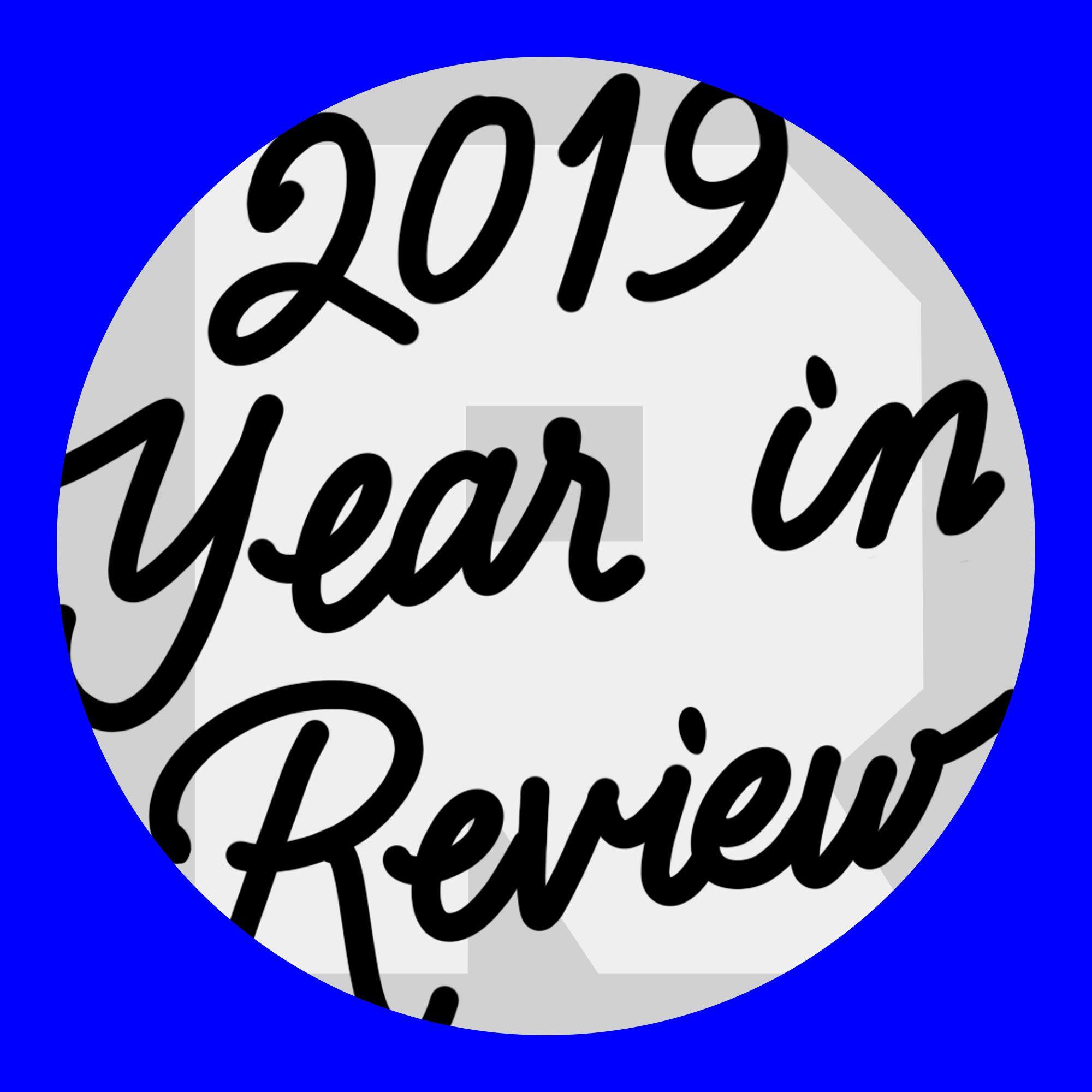President Donald Trump’s dealings with Ukraine have become the subject of intense political intrigue as we near the end of 2019, but a separate scandal involving another foreign nation hung over much of Trump’s first term: Russian aid for his 2016 campaign. Before the Bidens, there were the Clintons. Before House Democrats opened an impeachment inquiry into Trump, there was the special counsel investigation, led by Robert Mueller, which resulted in many criminal indictments against Trump’s political advisers. Before Ukraine and the whistleblower threatened to undermine Trump’s presidency, “Russiagate” engrossed Washington, D.C., and spawned countless hours of scandal-driven content—cable news segments, podcasts, essays, Twitter threads, press conferences, and congressional hearings. House Speaker Nancy Pelosi, California Representative Adam Schiff, and New York Representative Jerry Nadler have assumed their roles in recent months as Trump’s main adversaries, but for much of 2019, it was Mueller who loomed as the president’s chief antagonist—even as his investigation concluded eight months ago in a profound anticlimax.
Trumpian melodrama permeated every phase of Mueller’s investigation, beginning with his appointment by deputy U.S. attorney general Rod Rosenstein in May 2017 to investigate Russian interference in the 2016 election favoring Trump. Rosenstein called Mueller out of retirement after Trump’s attorney general, Jeff Sessions, recused himself from the investigation, an act of betrayal for which Trump still, apparently, has not forgiven him. A week before Mueller was appointed, Trump fired FBI director James Comey, who resisted Trump’s crude requests for “honest loyalty.” Comey, Sessions, and Rosenstein’s defiance infuriated the president, but he saved his most intense criticism for Mueller, who reported to Rosenstein and thus eluded Trump’s direct authority.
For two years, Mueller investigated Trump and his associates in mercenary-like silence. The Mueller watchers—pundits and partisans, including so many tedious “experts”—scrutinized the special counsel’s most mundane cues as divine pronouncements. The Mueller watchers obsessed over the investigation as an endless dramatic churn that didn’t resemble law or politics so much as it resembled binge-watching. Obsessive Mueller watchers might recall Trump’s first term not as a series of episodes in governance—tax cuts, trade wars, immigration restrictions, health care reforms, government shutdowns, judicial appointments, and national disasters—but rather as a series of esoteric milestones in the special counsel’s investigation.
Mueller became a mythical figure in the U.S. political imagination. Indeed, Trump cast Mueller as his worst rival since Hillary Clinton. Mueller inspired as much political memorabilia and as many conspiracy theories as a major party’s presidential nominee, even as he spent two years avoiding the press. His media silence resonated as the nation’s strange, new political frequency. The long, tedious investigation was a distinctly modern spectacle, a dystopian episode in cable news culture. It was a lively and ludicrous phase that countered Trump’s alleged malfeasance with endless fan fiction about his and his family’s commercial interests, “kompromat,” and Russian President Vladimir Putin. Russiagate transformed some legitimately intriguing revelations about geopolitics, social media, and cyber warfare into an unwieldy media obsession with infinite minutiae: So many names, dates, assets, and clandestine agreements involving various foreign operatives and Trump associates, all amounting to a conspiracy to undermine U.S. elections. It was also a cottage industry for whimsical punditry about Trump and the rule of law. The nation’s columnists, podcasters, and cable news producers relaunched themselves as conspiracy theorists. The Mueller watchers regarded Trump as a constitutional riddle as their hero, Mueller, searched for some righteous and spectacular resolution to the question of Trump’s election.
Mueller provoked no more prolific a conspiracy theorist than Trump, who catastrophized Mueller’s “witch hunt” as his darkest hour. “I’m fucked,” Trump reportedly told Sessions in response to Mueller’s appointment. Among the Trump confidants indicted by Mueller: his campaign manager Paul Manafort, attorney Michael Cohen, political adviser Roger Stone, national security adviser Michael Flynn, business partner Rick Gates, and campaign aide George Papadopoulos. Mueller frustrated Trump more than any congressional Democrat, even after Pelosi reclaimed the House speakership following the 2018 midterm elections. Ultimately, Mueller would spend 22 months and, as Trump liked to stress, $32 million to prosecute Trump’s closest advisers on charges ranging from criminal fraud to conspiracy. The FBI raided Manafort’s house. Flynn and Cohen accepted plea deals in exchange for their testimony, with Cohen going so far as to disavow Trump and disparage him as “a racist,” “a con man,” and “a cheat,” in televised congressional hearings. Manafort, Cohen, and Papadopoulos have served prison terms; Flynn, Gates, and Stone await sentencing.
The first season’s finale for Mueller watchers arrived in March 2019 with the release of the special counsel’s conclusive 448-page summary—the so-called Mueller Report, marking the investigation’s anticlimax. At the time of the release, Sessions had resigned, so Mueller released his report to Sessions’s successor, Trump appointee Bill Barr, who moved quickly to reassert presidential authority over the special counsel. Mueller declined to prosecute the president for obstruction of justice, citing Justice Department guidelines. Barr claimed victory on Trump’s behalf, summarizing Mueller’s findings in an April 18 press conference using Trump’s preferred vernacular: “no collusion.” Better yet, Trump claimed “exoneration.” Barr claimed closure. Mueller’s first public comments came during his testimony before the House Judiciary and Intelligence committees in July, led by the majority Democrats, four months after he released his report. In the public hearings, Mueller spoke slowly, and somewhat inartfully, about his own findings, which congressional Republicans ridiculed as indecisive and inconclusive regarding Trump’s conduct. Far from demonstrating his legal excellence, Mueller proved his unsuitability to command Trump’s favorite medium: television. For two years, Mueller avoided the cameras, refusing to star in the political soap opera driven by his investigation—in July, congressional Republicans trivialized Mueller in prime time.
In his testimony, Mueller underscored his main concerns about the Russian government’s interference in the election. “It wasn’t a single attempt,” Mueller said. “They are doing it while we sit here, and they expect to do it during the next campaign.” But Mueller frustrated congressional Democrats by his inability to explain his rationale for failing to charge Trump with obstruction of justice—a felony—despite Mueller implying, though not quite alleging, that the president did indeed obstruct the special counsel’s investigation. Short of indictment, Mueller couldn’t resolve the central doubt about Trump’s misconduct: Is a sitting U.S. president simply above the laws that sent his advisers to prison? Mueller couldn’t speak as decisively, and conclusively, as so many Russiagate obsessives had imagined. But the Mueller watchers would renew their optimism in the ongoing Season 2.
On September 24, Speaker Pelosi announced a congressional impeachment inquiry against Trump. She didn’t mention Mueller, Comey, or Russia. Rather, she cited a phone call, occurring on the same day as Mueller’s testimony, in which Trump asked the Ukranian president, Volodymyr Zelensky, to investigate former vice president Joe Biden’s son, Hunter, concerning his work for Burisma Holdings, a Ukraine-based energy company. Trump’s request was interpreted as an attempt to weaken Joe Biden in the 2020 presidential election. White House aides regarded the conversations as and “deeply disturbing.” A complaint from an unnamed whistleblower now forms the basis for the impeachment inquiry against Trump. Congressional Democrats now present the Trump-Zelensky conversations, publicized as transcripts and scandalized during witness testimony, as impeachable offenses. Last week, House Democrats approved two impeachment articles against Trump following two weeks of congressional hearings, setting up a historic vote in the House on Wednesday. The Mueller watchers have now become the impeachment watchers.
The “impeachment inquiry” was a vague term when it was introduced, but Pelosi’s initial stagecraft was decisive: In her televised remarks, the House speaker stood before several U.S. flags, cited Article I, quoted Benjamin Franklin, and took no questions. Pelosi had previously resisted the many calls for Trump’s impeachment throughout Mueller’s probe. Suddenly, the House speaker adopted the language and style popularized by so many Mueller watchers. If the politics of impeachment must outpace the judicial proceedings dictated by the law, then congressional Democrats must outwork the Republicans in all three branches of government. Pelosi cannot promise Trump’s conviction in the Senate, which would require a few Republican senators to join the minority Democrats to overcome the necessary threshold of a two-thirds majority vote. For now, Pelosi can promise only more subpoenas in the House, more hearings, and more revelations.
Congressional Democrats cannot rival Mueller’s messianic status among pundits and partisans. Ukraine obsessives watch Schiff’s and Nadler’s hearings as closely as they followed Mueller’s investigation, but they can only hope the Democratic committee leaders can rival Mueller’s diligence. Ideally, they hope Pelosi will imperil Trump and demoralize his White House through attrition. She won’t be marching some mythical impeachment scroll to the grand marshal of the Supreme Court. She’ll watch the hearings and count her votes in the House. Trump will split his attention between his impeachment and his reelection. “First it was the Russia hoax,” Trump told the crowd at a recent campaign rally in Sunrise, Florida. “Now, the same maniacs are pushing the deranged impeachment, a witch hunt the same as before.” Trump spouts the same tropes as ever—from “no collusion” to “no quid pro quo”—but the “impeachment inquiry” improves upon Mueller’s investigation in crucial respects. Now, there are a couple of hundred bureaucrats confronting Trump—and not one savior among them.

